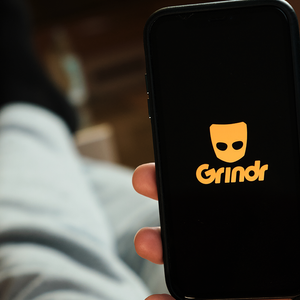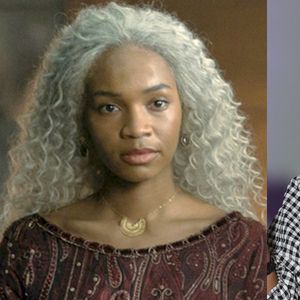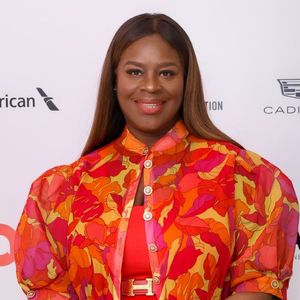Presidential
hopeful Barack Obama faces two major obstacles in South
Carolina, the first Democratic testing ground for black
support: the popularity of the Clinton name and doubts
among blacks that white America is ready for a
minority president.
The candidacy of
the 45-year-old Obama elicits genuine excitement in a
state where blacks make up about half of the voters in
the Democratic primary to name the party's nominee.
Yet coupled with that emotion is a strong degree of
skepticism about the senator's experience and whether
he can win.
Obama also is up
against the formidable Hillary Rodham Clinton, the
Democratic front-runner who enjoys strong support from black
voters and is married to former President Bill
Clinton, who is wildly popular among blacks.
The Associated
Press interviewed Democratic voters across the state,
including about a dozen black voters, and found evidence of
both excitement and doubts.
The South
Carolina primary, coming after the heavily white Iowa and
New Hampshire votes, and after Nevada casts its
ballots, is crucial for Obama, because doing well
could provide momentum in later state votes and
provides a forecasts for his chances elsewhere, especially
among black voters.
Ashley Torrence,
a 27-year-old college instructor in Greenville, is torn
between voting for Obama and Clinton, and she considers her
vote crucial because either candidate could smash
barriers. Torrence has talked to Clinton and was
disappointed when all she got from her encounter with
Obama was a handshake.
''I wanted to ask
him how he had planned to combat the feeling that
unfortunately a lot of people have about just not being
ready for a black male to be president and
particularly a lot of people with Old South
mentality,'' she said. ''How is he going to deal with that?
Because you can't campaign as though it doesn't
exist.''
It was an issue
Obama confronted on his first trip to South Carolina in
February, telling those who doubted he could win because he
is black: ''Don't tell me I can't do something.... I
don't believe in this can't do, won't do, won't even
try, style of leadership. Yes, we can. Don't believe
in that.''
Obama's plea was
directed not only at voters, who will participate in the
January 29 primary, but Democratic state senator Robert Ford
of Charleston. Ford garnered headlines when he said he
was backing Clinton in part because he was skeptical
that Obama could win the presidency and feared that
his nomination could hurt other Democratic candidates.
''Every Democrat
running on that ticket next year would lose--because
he's black and he's top of the ticket. We'd lose the
House and the Senate and the governors and
everything,'' said Ford, who is black.
He drew
widespread criticism for his comment and later apologized.
But the AP
interviews suggested the view is prevalent among blacks,
along with concerns across racial lines about whether
Obama has enough experience to be president.
Greenville County Democratic Party chairman Andy
Arnold hears it frequently among blacks, who are supporting
Clinton in greater numbers in recent polls.
''A lot of the
African-Americans are with Hillary because I think they
don't believe white America is ready for a black
president,'' said Arnold, who is white and uncommitted
in the race. ''They want to win, and so in a way I
think it is a barrier to him. And it may be more so in the
South, where the remnants of the Old South are still in the
older folks' mind. They just can't believe in their
right mind that white folks will elect a black man
president, so let's not put ourselves through that
agony.''
Clinton is a
favorite of black women in current polls, due largely from
goodwill for her husband and her lifelong focus on issues
affecting families and children. Much of her lead
comes from women and blacks, and it is strongest among
black women. According to Associated Press-Ipsos polls
taken this summer, 59% of black women said they support
Clinton and 27% Obama.
Obama campaign
officials argue that doubts about whether a black man can
be elected are not widespread. They cite a Winthrop Poll of
South Carolinians in May in which 79% of respondents
said they think the country will be ready for a black
president in the next 12 years. However, the poll did
not ask whether they would be ready in 2008.
The Obama
campaign launched radio ads this week with a direct appeal
to black voters and has embarked on a labor-intensive
effort to reach voters in their homes. Obama has about
40 staffers in the state, more than double any of his
rivals. His leadership in fund-raising--he has raised
nearly $60 million--allows him to invest in
advertising and staff through the primary race.
Part of the
campaign's strategy is to host small meetings in voters'
homes.
Iris Gladden was
one of nine to attend a party this week in the rural
community of Timmonsville. Obama field organizer Ryan
Cooper, 22, talked about the candidate's appeal across
racial lines and showed the group a video about the
candidate that focused on Obama's modest background and
accomplishments, then asked to hear their concerns.
As Gladden left
the gathering, she was still undecided about whether to
vote for Obama or Clinton.
''I see problems
with both,'' she said. ''Obama because he's black and
Hillary because she's a woman. Are we ready? Is America
ready to go there?''
Rep. Jim Clyburn,
the only black member of South Carolina's congressional
delegation, said he thinks concerns about the war are more
prominent in voters' minds than issues of candidates'
race or gender. But he said if anything, Clinton's
gender might help her in that regard.
''When it comes
to issues of war and peace, women hold out hope for peace
more than men do,'' said Clyburn, who has not endorsed a
candidate but has not ruled out doing so later. ''If
the election were held today, Clinton would carry the
state. It's not going to be held today.''
Another
candidate, 2004 Democratic vice presidential nominee John
Edwards, has been arguing that he will be more electable in
the South. He denies that is because of Obama's race
or Clinton's gender but says it's because they have
never run in the South while he won the primary in 2004
and was elected senator in North Carolina. (Nedra Pickler,
AP)



















































































